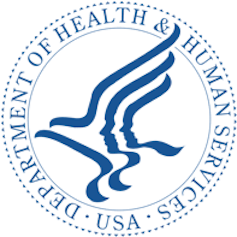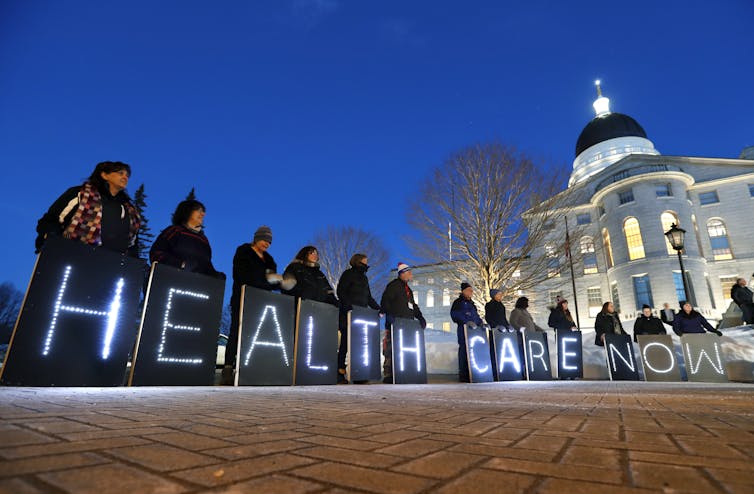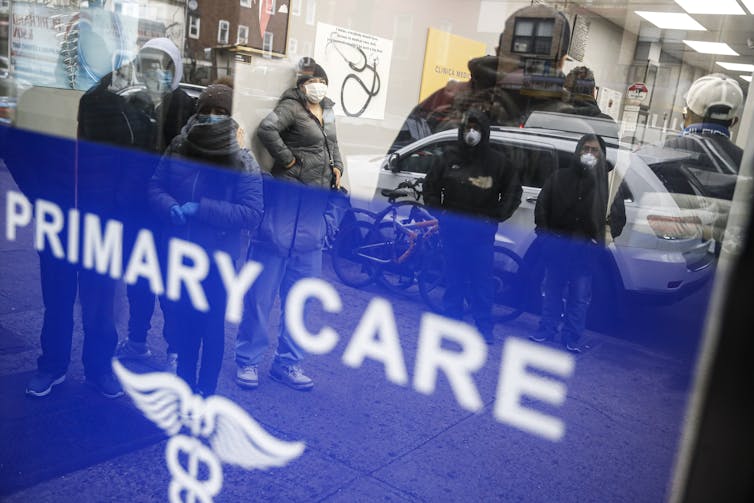Health and Human Services secretary influences every aspect of America’s health
Overseeing the FDA, NIH and several other public health and medical research divisions, the HHS secretary is a powerful force in how the nation accesses health care.

The secretary of the Department of Health and Human Services, or HHS, plays a significant role in every American’s access to health care and in the nation’s overall well-being.
Under the secretary’s leadership, the multiple agencies that constitute HHS oversee the financing of Medicare and Medicaid, conduct research to improve care quality, monitor health care fraud and abuse, and respond to pandemics.
I am a scholar of health care policy and former Robert Wood Johnson Health Policy Fellow on the U.S. Senate Committee on Health, Education, Labor and Pensions. In my time as a fellow from 2000 to 2001, I witnessed how significant the HHS secretary’s role is in protecting and preserving the health of our nation.
The secretary’s direction influences America’s ability to prepare for health threats, take up childhood vaccines, enhance the water supply, and a host of other public health measures. Understanding how the department and its leader influences the health of the U.S. is especially important in today’s environment of persistent emerging infectious diseases and misinformation.
What does the Health and Human Services secretary do?
The secretary of Health and Human Services is a member of the president’s cabinet of advisers, appointed by the president with the advice and consent of the U.S. Senate. The secretary advises the president about health care policy issues and public health measures and is responsible for 13 operating divisions in charge of the nation’s health.

The charge of the HHS secretary is to oversee the department’s mission: “to enhance the health and well-being of all Americans, by providing for effective health and human services and by fostering sound, sustained advances in the sciences underlying medicine, public health and social services.”
Implementing this mission requires one of the largest budgets for a U.S. federal agency. According to the Office of Management and Budget, the Health and Human Services Department has accounted for at least 20% of the federal budget since fiscal year 1995. For fiscal year 2025, the HHS requested approximately US$1.8 trillion in federal outlays.
Powers of the HHS secretary
The Health and Human Services secretary has several key powers that allow them to fund and implement programs and initiatives critical to American health and well-being.
One of these powers is the right to administer and regulate Medicare, Medicaid and the Affordable Care Act, or ACA. The largest portion of the HHS budget goes to Medicare and Medicaid programs, which account for 52% and 33% of funds, respectively. The secretary, in coordination with the Centers for Medicare and Medicaid Services, sets guidelines for coverage, payment and service delivery. The secretary also issues regulations and guidelines to implement ACA provisions, manage the federal health insurance marketplace, ensure compliance with ACA requirements and educate the public about their rights and benefits under the ACA.

The HHS secretary also has oversight of medical and scientific research. Through the National Institutes of Health, or NIH, the secretary yields broad power in allocating funding and promoting study of the causes, diagnosis, treatment, control and prevention of diseases. The NIH has an annual budget of more than $47 billion.
With the proliferation of international travel, the health of the country is increasingly dependent on the health of the world. The HHS secretary represents the U.S. in global health matters, often collaborating with the World Health Organization, foreign governments and ministries of health to enhance pandemic preparedness and global health security.
Public health emergencies
The HHS secretary also has legal authority to prepare for and respond to public health and medical emergencies.
For example, the Public Health Service Act authorizes the HHS secretary to lead federal responses to health threats, including declaring a public health emergency to control communicable diseases.
Through the Food and Drug Administration, the Federal Food, Drug and Cosmetic Act allows the HHS secretary to oversee the safety and efficacy of food, pharmaceuticals, medical devices and cosmetics.

The secretary can also enable the FDA to issue an emergency use authorization, enabling clinicians to use unapproved medical products to manage specific conditions in an emergency. For example, during the COVID-19 pandemic, the HHS secretary declared that the circumstances justified the FDA to issue an EUA for the COVID-19 vaccines, allowing them to be quickly brought to the market.
Under the Social Security Act, the secretary is authorized to waive or modify certain Medicare, Medicaid and Health Insurance Portability and Accountability Act, or HIPAA, requirements. This provision ensures that health care items and services are available for programs under the Social Security Act during public emergencies.
Notable HHS secretaries
A Health and Human Services secretary’s leadership can support and spearhead health care programs, roll out insurance expansion and determine how the nation responds to a pandemic.
For example, Donna Shalala was the longest-serving HHS secretary, in office from 1993 to 2001. She created the Children’s Health Insurance Program in 1997, which expanded health care access for millions of children.
Oveta Culp Hobby was the first secretary of HHS, then called the Department of Health, Education and Welfare. Serving from 1953 to 1955, she led the rollout of the polio vaccine during her last year, leading to the near eradication of this disabling disease in the United States.
Serving from 2009 to 2014, Kathleen Sebelius was instrumental in implementing the Affordable Care Act. She helped establish the health insurance marketplace and advocated for expanding Medicaid under the ACA, allowing millions of low-income Americans to gain health coverage.
The HHS secretary’s priorities and decisions have a direct and lasting impact on the health and well-being of most Americans, making this role one of the most significant in federal government.
Angela Mattie received funding from Robert Wood Johnson Foundation as a Robert Wood Johnson healthcare policy Fellow (2000-2001) and from John A Hartford Foundation as a Health and Aging Healthcare Policy Fellow (2019-2020).
Read These Next
Cuba’s speedboat shootout recalls long history of exile groups engaged in covert ops aimed at regime
From the 1960s onward, dissident Cubans in exile have sought to undermine the government in Havana −…
Drug company ads are easy to blame for misleading patients and raising costs, but research shows the
Officials and policymakers say direct-to-consumer drug advertising encourages patients to seek treatments…
Nanoparticles and artificial intelligence can help researchers detect pollutants in water, soil and
Tiny particles bounce light around in a unique way, a property that researchers are using to detect…




